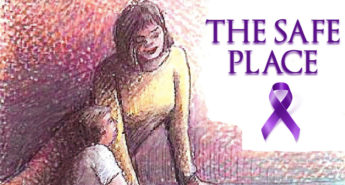 The legal definitions of stalking vary from one jurisdiction to another; however, a good working definition of stalking is a course of conduct directed at a specific person that would cause a reasonable person to feel fear. A stalker can be someone you know well or not at all. Most have dated or been involved with the people they stalk. Most stalking cases involve men stalking women, but men do stalk men, women do stalk women, and women do stalk men.
The legal definitions of stalking vary from one jurisdiction to another; however, a good working definition of stalking is a course of conduct directed at a specific person that would cause a reasonable person to feel fear. A stalker can be someone you know well or not at all. Most have dated or been involved with the people they stalk. Most stalking cases involve men stalking women, but men do stalk men, women do stalk women, and women do stalk men.
If you are being stalked, you may:
- Feel fear of what the stalker will do.
- Feel vulnerable, unsafe, and not know who to trust.
- Feel anxious, irritable, impatient, or on edge.
- Feel stressed, including having trouble concentrating, sleeping, or remembering things.
- Have eating problems, such as appetite loss, forgetting to eat, or overeating.
- Have flashbacks, disturbing thoughts, feelings, or memories.
- Feel confused, frustrated, or isolated because other people don’t understand why you are afraid.
Some things stalkers do:
-
Follow you and show up wherever you are.
-
Send unwanted gifts, letters, cards, or e-mails.
-
Damage your home, car, or other property.
-
Monitor your phone calls or computer use.
-
Use technology, such as cameras or global positioning systems (GPS), to track where you go.
-
Drive by or hang out at your home, school, or work.
-
Threaten to hurt you, your family, friends, or pets.
- Posting information or spreading rumors about you on the Internet, in a public place, or by word of mouth.
What should you do if you are a stalking victim? Contact your local law enforcement agency immediately to file a complaint and be prepared to give details about the stalking. Victims are encouraged to write down occurrences after they happen so they can clearly be communicated to authorities; this includes all stalking behaviors including e-mails and phone messages. The log, as well as any gifts or letters the stalker sends the victim, can be collected and used as evidence. The evidence will help prove what has been going on if the victim decides to report the stalking to the police.
Resource: The National Center for Victims of Crime




Leave a Reply